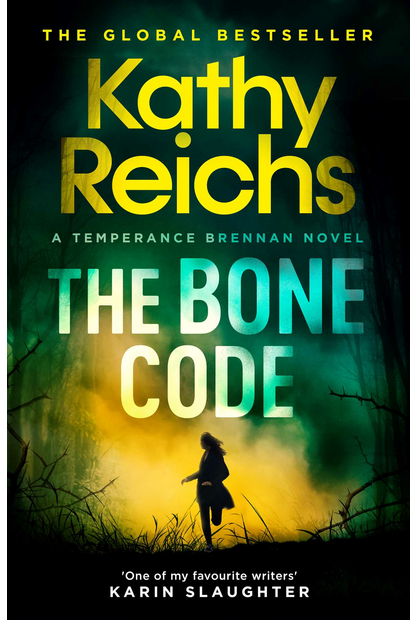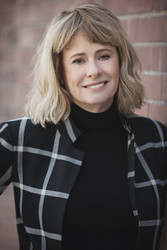Capsule x Harper Collins
Growing up, I had a father who was a prolific reader – he had two huge bookshelves, completely over-stacked with novels, which I’d sneak a look at any time he was out. Kept in mint condition, I’d run my fingers over their shiny covers and gently open them to read bits and pieces – which mostly terrified the heck out of me. I’d marvel at how truly insane and weird adults were for thinking this stuff up and for reading it and decided I never wanted to grow up and have to move on from my Babysitter’s Club Books.
Yet here I am, surrounded by my own stack of crime novels – with a backlog of true crime podcasts lined up on my phone and a Netflix history that looks like I’m plotting my own crime spree.
And I’m certainly not alone – the number of women who are consumers of the crime genre is exploding.
More than 70% of Amazon reviews on true-crime books are by women, we’re watching TV crime documentaries and fictional shows in droves, and we’re also fueling the growth of true crime podcasts. And not only in terms of listenership, but in the actual creation of podcasts – some of the most successful podcasts of all time have been female led, think Serial (the original crime podcast) and My Favourite Murder (where the two hosts share true crime tales and sign off with “Stay sexy and don’t get murdered!”).

The previously male dominated genre of crime novels is now becoming the domain of females, thanks to the popularity of books like Gone Girl and the work of former forensic anthropologist turned crime writer, Kathy Reichs. Kathy, a complete powerhouse is a best-selling author, with her 21st novel – The Bone Code – now on sale. Twenty of these books make up the ‘Temperance Brenan’ series, revolving around a forensic anthropologist as she solves grisly murders. They became so popular, they spawned the TV show, Bones.
If you’re looking at the book store, or on Netflix and think a lot of these crime based pieces appear to be now targeted at women, you’d be completely right. There’s a huge – and growing – market demanding for more.
So, just why is it that we’re all wanting to lap up this genre?
Julia Davis – the editor of Crime Monthly magazine – says, “Women are fascinated by true crime because it’s a facing your fears thing. It’s knowledge is power. Your worst possible fear – understanding it, confronting it, knowing everything you can about it. That’s a major thing I hear again and again from women.”
It’s a sentiment Rachel Fairburn, co-host of the All Killa No Filla podcast echoes. “I think women love true crime because pretty much from the time that we’re very small, we’re told to be careful, look after ourselves, watch out for bad people, make sure we get home safely”, she says. “I think safety is always at the forefront of our minds and when we read about serial killers, murderers, true crime cases, I think there’s always an element of self-preservation there.”
It’s why the catchphrases in My Favourite Murder frequently get turned into fan art – “Pepper spray first, ask questions later’ and “F**k politeness’. It’s the later that you can find printed on key-chains, shirts and cross-stitched onto pretty cushions and has struck a chord with women. It first came about in an episode where hosts Karen and Georgia covered the cast of Rodney Alcala, a convicted murderer and rapist who convinced women that he was a fashion photographer in order to lure them into an abandoned building. It led Karen and Georgia to talk about all the times they’d gone along with a scenario for fear of upsetting or disappointing a man and from a belief that as a woman we should make sure we’re always polite to strangers – even if our gut is telling us something is off. Georgia even recalled her own similar experience in LA as a young woman when a stranger asked to take her photo.
“I feel so stupid but when I was 18, I was new to LA and I was so flattered that someone wanted to take my photo and it was the 90s, and I didn’t understand, and I thought I knew this person, he was so nice all the time,” she said. “When I say ‘fuck politeness’ it’s because I’ve done shit that would’ve probably been really unsafe. I just want to cry thinking about it.”
So it seems part of the draw to reading about crime is to face fears we have head-on and educate ourselves on how we might possibly get out of one of those situations alive – or potentially avoid them all together.
It seems we also love knowing how crimes are solved and hearing about the intricacies of DNA are increasingly likely to catch the baddies. Which is where Kathy Reichs has really created her niche, more than a novelist, she’s a scientist. She was 49 when she wrote her first novel, having worked as a forensic anthropologist in some of the most testing environment. “I did a deployment to Ground Zero, and I testified in the UN tribunal on genocide in Rwanda, and I helped exhume the mass grave in Guatemala,” she tells.


” In Rwanda I was there under witness protection, and when I was in Guatemala there were threats against the foundation that was full-time recovering victims of the murders, thousands of people that were killed by the government. I’ve had a few individual cases where the defendant didn’t like what I was saying on the stand and threatened to kill me, but I don’t think about that.”
It was while she was a university professor that she realised she’d need to be bringing in some more money if she was going to be able to put her children through university. After reading a few rather average paperback novels, she decided she might be well poised to give it a crack herself. And here she is, at 71 still creating best-sellers. Her key is, perhaps her scientific background and immense knowledge, but too that she knows she is writing for women – there’s suspense, thrill and shock, but never anything too grisly.
It’s a formula that works – I just have to find time between my busy Netflix/Podcast line-up to now get through all 21 of her works.
CRIME EXTRA! 5 Mins with Kathy Reichs Herself…
Kathy, there are so many women (myself included!) who can’t get enough of the crime genre. What’s your take on that? Why are we so obsessed?
For most of us, our lives are never touched by crime. And if we are, we may never see behind the scenes – the autopsy room, the crime scene, the morgue. Crime fiction gives a peek into that. Ant eh story is a puzzle we can try to solve.
Besides being a best-selling author (and your work in TV, of course) your background is as a forensic anthropologist – what drew you to this field in the first place?
My Ph.D. was in physical anthropology and my specialty was in bio-archeology. My plan was to work with ancient skeletons and archeologically recovered materials. But when police would find human remains, they’d say, ‘let’s just take them to the bones lady at the university.’ That’s how I shifted over from archeology to forensics.
Do you have an intended audience in mind when you’re writing? Who is it?
I write for the reader that wants to learn something, enjoy a good story, and meet characters they will care about. My novels are science based, not so much the typical police procedural. I am a fanatic about keeping that science correct. Even when I was working on scripts with Bones, the science was accurate. Our DNA results did not come back from the lab overnight, and everything we used to solve a crime exists in some capacity. Ditto the books!
How do you go about injecting humour into your writing – it’s such a delicate balance when the storyline is so serious and grim!
It is a delicate balance. But you have to lighten the mood. Dismembered, badly burned, or mummified corpses are not funny. Tempe has a very dry sense of humor and I’ve been told it’s very much like my own sense of humor.
Now, many of your novels are based on real life cases – are there any big true crime cases that you have followed closely and have strong feelings about?
I want my books to be more than just murder mysteries. I like to encourage the reader to consider broader societal issues.
Grave Secrets (2002) tackles Guatemala’s ‘disappeared’; Bare Bones (2003) involves the trafficking of endangered species; Bones of the Lost addresses the issue of human trafficking (2013). I don’t want to repeat serial killer after serial killer. I take a core ideas from real life then I change the details and ask myself – What if this? What if that? I originally trained as a bio-archaeologist, so I am also drawn to questions of historical significance. One of my favourite cases involved Jean LeBer, a woman who died in 1714. In the early nineties was proposed to the Vatican for beatification. I was hired by the Archdiocese of Montreal to exhume and analyze her remains. This experience led to one of the plot lines in my second book, Death du Jour (1999). So I guess any true crime interest me.
Do you listen to crime podcasts? If so, what do you listen to?
I have listened to a few. Serial. Root of Evil. Some of the Someone Knows Something series.
Lastly, where do you do the bulk of your writing AND do you ever have trouble sleeping when you’re in the midst of a book?!
I have an office at my beach house with a killer view, but it can be distracting on a beautiful day. I also have one at my home in Charlotte, NC. The cat checks in from time to time, but when in either office I have minimal distractions. And I sleep well at night!
The Bone Code by Kathy Reichs is out now.

